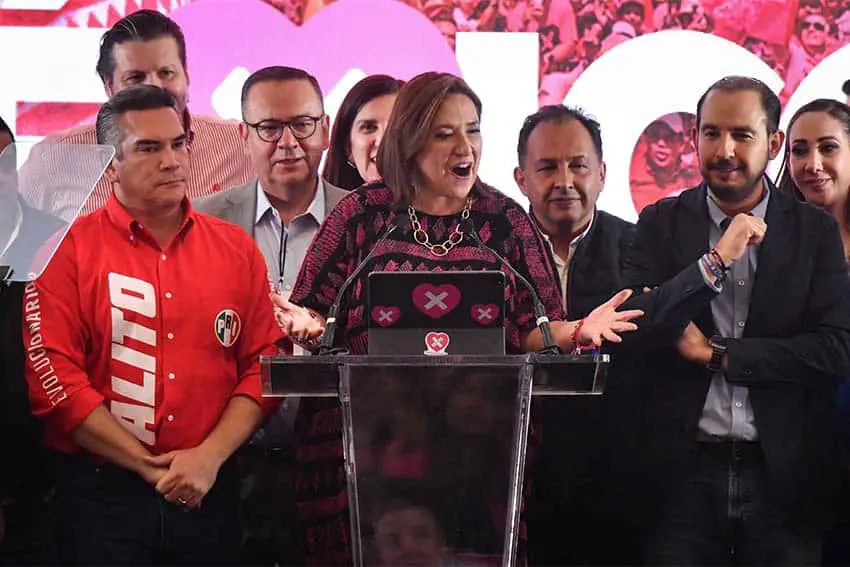The Federal Electoral Tribunal (TEPJF) has validated Claudia Sheinbaum’s victory in the June 2 presidential election, meaning that she is now the official president-elect of Mexico.
The TEPJF said in a statement on Wednesday that its upper chamber dismissed 240 complaints against the election results as well as one request from a citizen for the election to be annulled.

The court also dismissed a claim of election irregularities filed by Xóchitl Gálvez, the candidate for the main opposition parties at the June 2 election.
“Afterward, the final calculation of the presidential election was carried out, which concluded that the candidate Claudia Sheinbaum Pardo obtained the majority of votes,” the TEPJF said.
It said that Sheinbaum, the ruling Morena party’s presidential candidate, received more than 35.9 million votes or 59.76% of the total number of ballots cast.
The presidential election was found to be “valid because it was free, authentic and periodic,” the TEPJF said.
“Furthermore, it complied with the principles that govern the organization of elections: certainty, legality, independence, impartiality, maximum publicity and objectivity,” the court said.
Given that she “satisfies the requirements to be president of the United Mexican States” in accordance with the Mexican Constitution, the upper chamber of the Federal Electoral Tribunal “declared Claudia Sheinbaum Pardo the first presidenta electa,” or female president-elect, of Mexico, the TEPJF said.

Sheinbaum, who will be sworn in on Oct. 1, will receive a certificate confirming her majority victory at the TEPJF headquarters in Mexico City on Thursday.
Her comprehensive victory on the first Sunday of June ensures the continuation of the so-called “fourth transformation” (4T) of Mexico, initiated by current President Andrés Manuel López Obrador.
A coalition led by Morena also won resounding victories in the Chamber of Deputies and Senate elections on June 2, ensuring that Sheinbaum will have ample support for her legislative agenda.
That agenda includes a package of constitutional reform proposals López Obrador sent to Congress in February.
Sheinbaum said in June she would put forth two of her own constitutional reform proposals — one that would ensure that all women aged 60 to 64 receive government financial support and another that would guarantee educational scholarships for all public school students.
The president-elect has pledged to build “the second story” of the 4T, and declared that “shared prosperity” will be the “central axis” of her 2024-2030 government. She has already named the vast majority of her cabinet ministers.
A protégé of López Obrador who served as environment minister in Mexico City when the current president was mayor there in the early 2000s, Sheinbaum will provide continuity in a range of areas, including by maintaining significant government support for Mexico’s most disadvantaged people.
This week, she announced she will follow in AMLO’s footsteps and hold 7 a.m. press conferences at the National Palace once she has assumed the nation’s top job.
Among the areas in which she could differ from AMLO is energy policy, as she is committed to accelerating Mexico’s transition to renewables.
More reading on Claudia Sheinbaum
- Who is Claudia Sheinbaum? A profile on Mexico’s first woman president
- Claudia Sheinbaum is elected the first female president of Mexico
- What would Claudia Sheinbaum do as president?
- A wish list for President-elect Claudia Sheinbaum from our CEO
With reports from El Financiero
